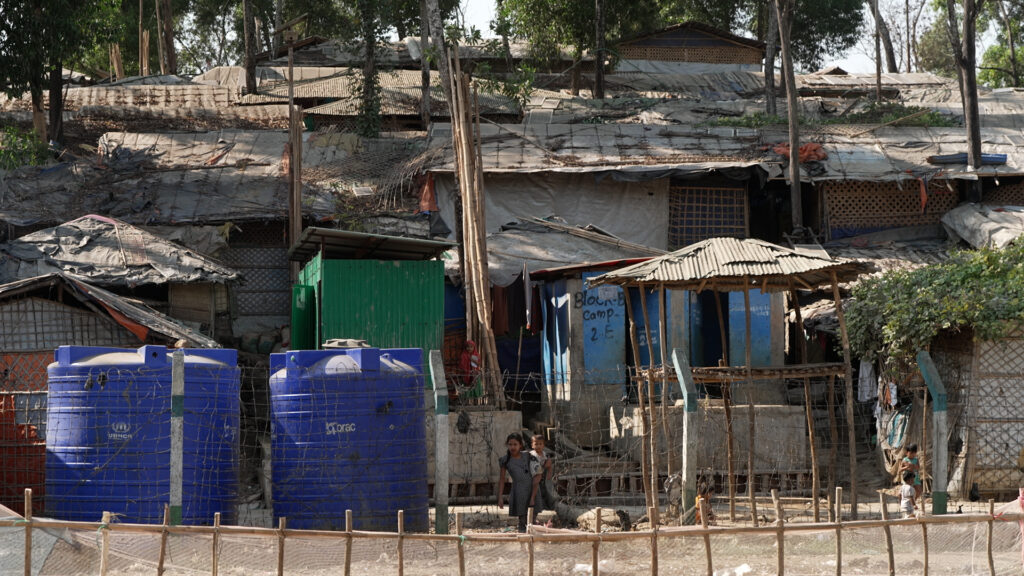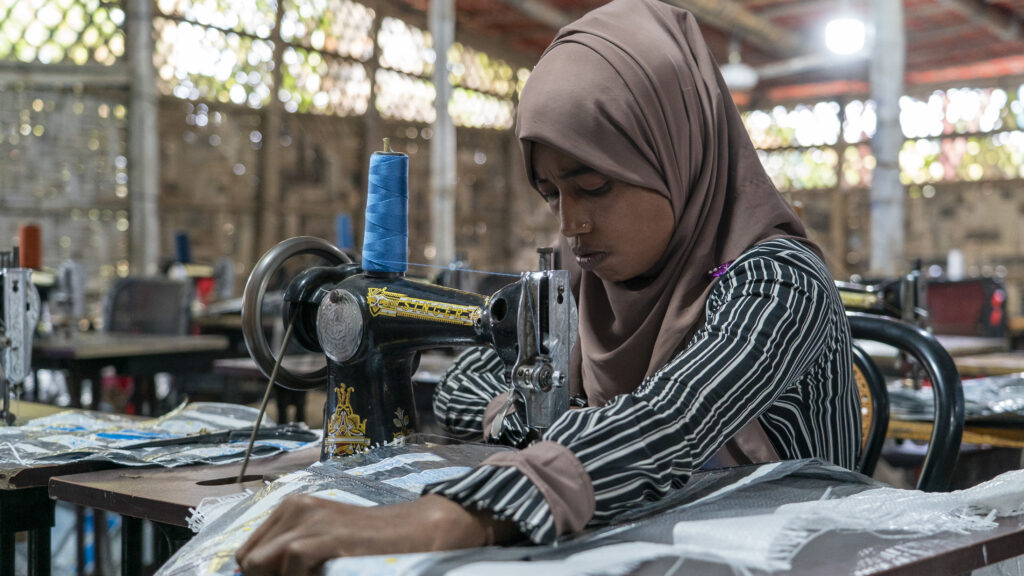In Cox’s Bazar, Bangladesh—home to the world’s largest refugee settlement—an innovative gardening project offers Rohingya refugees dignity, agency, and nourishment.

The sounds of roosters crowing, children playing, and vendors calling out their wares fill the air in Camp 13. Aromas of fried bananas, tobacco, and spices drift through the narrow lanes, evoking the atmosphere of a vibrant Bangladeshi market street. Yet this apparent normalcy conceals a profoundly harsh reality.
For nearly one million Rohingya who have fled Myanmar since 2017, life in Cox’s Bazar remains suspended. Confined to 33 overcrowded camps, they are barred from working, restricted from improving their shelters—any sign of permanence is prohibited—and unable to leave the camps. For almost eight years, life has stood still.

A Community Caught Between Crisis and Invisibility
The Rohingya, a Muslim minority, have endured decades of persecution in predominantly Buddhist Myanmar. In 2017, a brutal military crackdown drove hundreds of thousands to seek refuge in Bangladesh. Their villages were set ablaze, families were torn apart by violence, and countless lives were lost.
While safe from the violence they escaped, the refugees now confront a different kind of suffering.
‘The living conditions here are dangerous,’ says Turna Dewan of Cordaid Bangladesh. ‘The houses are close together, and the fire risk is high. It’s hard to earn an income in the camp, so many people can’t provide for their families.’
Watch this video in which project officer Turna Dewan talks about the programme:
Food insecurity is the most pressing issue. ‘They receive food from aid organisations, but it’s not enough to last the whole month,’ her colleague Sonali Chakma adds.
‘My dream has come true’
Jumeirah, who fled Myanmar with her husband and two children seven years ago, relies entirely on aid. ‘We have no family here who can help us, so we’re completely alone,’ she says. ‘We can’t earn money, so we can’t buy food. As a mother, I want to give my children a variety of vegetables, not just rice.’
Watch this video about the story of Jumeirah:
In an environment with limited space and low soil quality, Cordaid’s vertical gardening project has been transformative.
‘We teach residents how to build vertical gardens and provide materials,’ Sonali explains. ‘After the multi-day training, they can always return to us for advice.’
Jumeirah was selected for the programme and now proudly tends her small garden. ‘With this garden, I always have enough vegetables. My dream has come true,’ she says, beaming.
‘Now that I’m independent, I don’t have to ask for help. That feels good. Earning my own money gives me confidence and strength.’
A Vertical Oasis
Nearby, Nurdjahan’s garden thrives. Bamboo frames support small grow bags filled with seedlings, while pumpkins dangle from nets above. Vegetable vines ascend the wire fence, creating a tiny, vibrant oasis.
‘I received seeds and materials to create my vertical vegetable garden,’ she says. ‘Now I can grow my own vegetables and sell some. Last month we ate 30 kilos, sold 30 kilos, and gave 10 kilos to neighbours.’
Watch this video about the story of Nurdjahan:
Turning Waste into Growth
The project’s impact goes beyond gardening. At Cordaid’s Upcycling Centre in Camp 13, plastic food packaging is transformed into grow bags used in the vertical gardens.
‘We collect plastic from the camp and turn it into grow bags and other products,’ says Turna. ‘The income participants earn can be used for food and clothing.’
Jamilla Has Become a Master Trainer
Among the centre’s participants is 28-year-old Jamilla. She fled Myanmar eight years ago with her husband and young son. Tragedy struck during their journey: ‘While crossing the river, my husband was killed. I was pregnant with my daughter at the time,’ she recalls.
She gave birth in the camp, alone and grieving. ‘There was too little food for my children,’ she says, tears in her eyes. ‘Sometimes I had to sell the food I was given. My children would cry – it broke my heart.’

Now, Jamilla is a master trainer in the sewing workshop. ‘I’m even saving for their education and future, for when I’m no longer here,’ she says. ‘Now that I’m independent, I don’t have to ask for help. That feels good. Earning my own money gives me confidence and strength.’
Proudly, she adds, ‘I once learned to sew from a master trainer, and now I’m teaching other women. I can change their lives in just a few days. I hope Cordaid stays here for a long time, to help more people and families move forward.’
Watch this video about the story of Jamilla:



